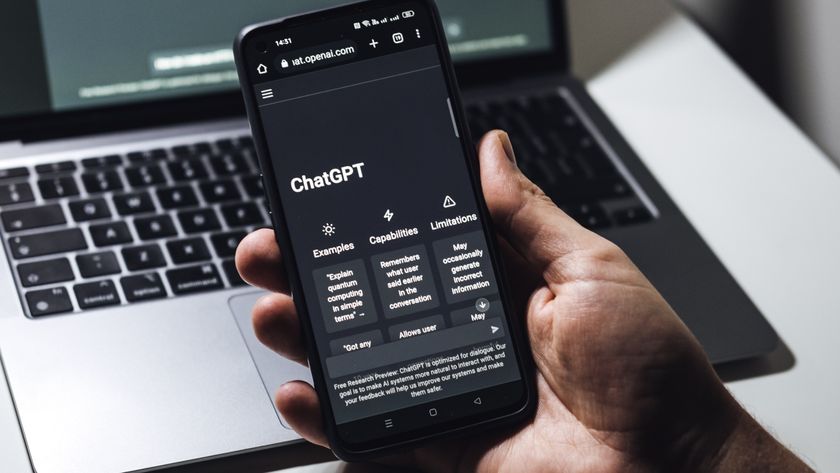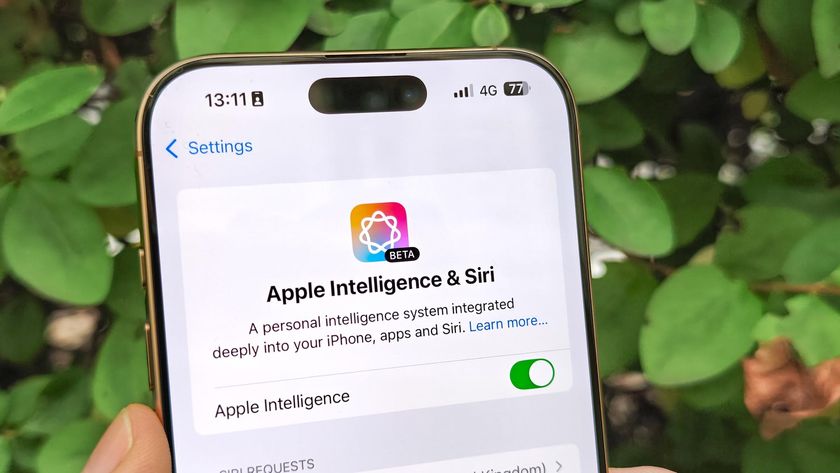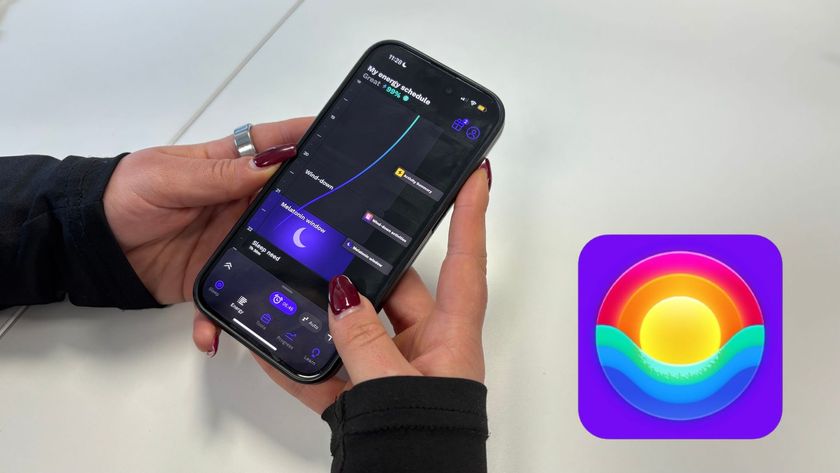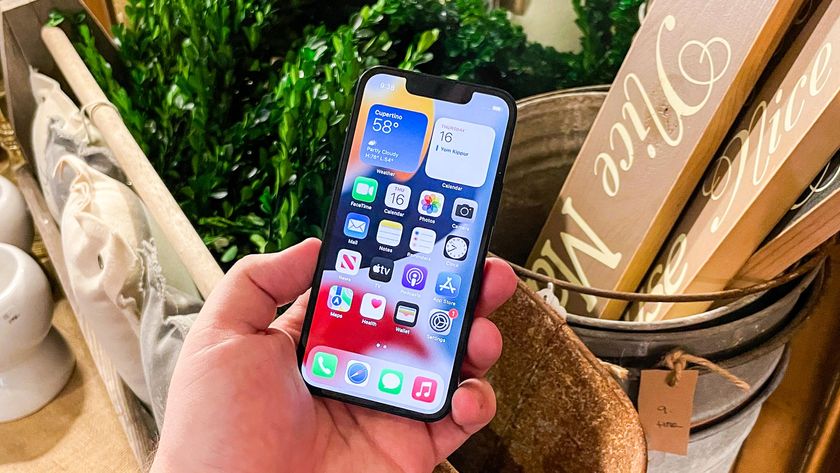Talk is Cheap: Why Chatbots Will Always Be a Waste of Time
Tech companies are building more witty bots like Siri and Cortana, but these anthropomorphic programs waste our time and give us a false sense of our own importance.
Though the concept of a computer feigning manners is about as fresh an idea as yet another emo Nicholas Sparks movie, tech companies are tripping over themselves in their rush to create "intelligent" chatbots and digital assistants. From Facebook's new chatbots that allow you to order flowers, to Microsoft's always-chatty Cortana helping you book a hotel room, it seems like all the major tech companies want to provide you with witty virtual concierges. However, shopping or searching with these AIs is much less efficient than using standard web tools. Even worse, it flips the human-machine relationship on its head.

My gadgets are my tools, not my friends. I don't need them to exchange fake pleasantries with me; I just need them to shut up and do my bidding.
There's something disgustingly bourgeois about having a fake servant.
No doubt most tech companies want you to anthropomorphize their bots. IBM has its Watson ads, and Apple used to run all those awkward commercials with stars like Samuel L. Jackson and Zooey Deschanel chatting with Siri. (Google's voice assistant is a noteworthy exception because it doesn't feign humanity.) If you are talking to a computer as if it were a person, you are, at some level, thinking of it as either a servant or a friend.
There's something disgustingly bourgeois about having a fake servant. Fantasizing that your phone is your personal assistant is even lamer than blinging out your fingers with zircon rings while you sit on your pleather couch watching Lifestyles of the Rich and Famous reruns. Either be wealthy enough to hire support staff or level-headed enough to know you don't have any.
MORE: Windows 10 Gaming Sucks, But Microsoft Can Fix It
If turning your gadget into a secretary makes you a poser, then picturing it as your friend makes you a loser. It's hard not to think about the movie "Her," in which Joaquin Phoenix's character falls in love with a "female" digital assistant, because it's the logical extension of the chatbot phenomenon.
The greatest gift we have in life is the love of our friends and family. By engaging in fake human-like chatter with bots, we blur the line between real relationships and software I/O.
In fact, all of these "natural language" conversations get in the way of useful communication between person and PC. My colleague Philip Michaels spent a few frustrating minutes booking a delivery using the 1-800-Flowers bot for Facebook Messenger, which failed to understand a full address he had entered, and when he changed his mind after selecting a bouquet, it ignored his request to "cancel" or "change my choice."
Eventually, Philip figured out that typing "help" restarted his order, but if he had been using an app or website, he could've just clicked a Cancel button, rather than trying to guess the magic words over and over again.
If you've ever written a program, even a very basic one, you know that a computer is like a very stupid but obedient person. It will follow your commands to the letter, provided that you use the correct syntax. However, if even one word is outside its limited vocabulary, it won't work at all. I'll never forget the time I asked an Ikea.com bot how to "buy a replacement screw" and it told me that it wouldn't respond to adult language.
MORE: 10 Gadgets You'd Be a Fool to Buy Now
With natural language processing, bots are supposed to understand all of the diverse ways you could say something like "cancel my order," but most appear to have limits. Cortana for Windows 10 has a new feature that will ring your missing phone so you can find where you left it. Entering "Ring my phone" or "Find my phone" launches this feature, but "Call my phone" and "Dial my phone" don't work.
Hitting the Esc key will always be more efficient than entering "I've changed my mind."
No doubt, with advancements in artificial intelligence, the vocabulary problems should get ironed out over time. However, even then, it will still be faster and easier to interface with a computer using short, unambiguous commands. Hitting the Esc key will always be more efficient than entering "I've changed my mind." It's no wonder that hardcore developers still like to work using a command line. Touch typing will always be a faster way to move files, write scripts or launch programs than point and clicking through five different menus.
Voice interactions can be faster than navigating menus or typing when they are specific instructions rather than vague pleasantries. For example, telling your computer to "increase the temperature by 1 degree" could be a faster way to control your thermostat than hitting the keyboard, but saying, "It feels like a freezer in here; do something about it," probably won't be.
The PC launched over 35 years ago, and the internet went mainstream more than 20 years ago. Most people know how computers work by now. There's no reason we can't talk to them like the machines they are.
Sign up to get the BEST of Tom's Guide direct to your inbox.
Get instant access to breaking news, the hottest reviews, great deals and helpful tips.
-
cmb_9 I don't think there is anything wrong with speaking to computers with the same speech we use in every day life. If we never thought to unify the two types of speech in the past, we'd still be coding programs with 8 bit codeReply -
Avram Piltch Reply17842217 said:I don't think there is anything wrong with speaking to computers with the same speech we use in every day life. If we never thought to unify the two types of speech in the past, we'd still be coding programs with 8 bit code
There's a difference between using natural language and making small talk. Right now, the natural language component is hit or miss -- see my colleague Philip Michaels' experience trying to change his 1-800 flowers order by typing "I'd like to change my choice." However, I'm sure that soon enough computers will get better at interpreting our diverse vocabulary. My point wasn't that you should have to speak in 1s and 0s to your computer, but that there's no benefit to anthropomorphisizing it. Say "weather" or "today's weather" but there's no need to have tell you stupid jokes or have you address it as a person ("Siri, should I wear a coat today?").













